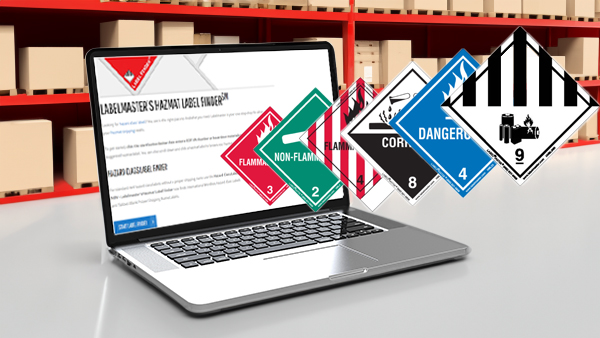In the fast-paced world of Dangerous Goods (DG) compliance, selecting the proper shipping label is essential. Without the right labels, DG shipments will be rejected by regulatory authorities and carriers, creating harmful supply chain delays. However, finding the proper label isn’t always quick or easy. In fact, with numerous label options across nine hazmat classes,…
How hazmat shipping automation helps you find hidden demand (and revenue).
Can automating your operation with hazmat shipping software really help you increase your revenue? The simple answer is “Yes.” Advanced software such as our Dangerous Goods Information System (aka DGIS) can give you the speed and efficiency to execute more hazmat shipments every day. And more shipments equals more revenue, right? Sure, we know it’s…
What is master data, and why is it so important for hazmat transport?
What exactly are you shipping? Simple question, right? Not at all. It turns out a lot of shippers don’t know exactly what they’re shipping, and that lack of knowledge has a profound ripple effect on the entire supply chain. I’m talking here about master data—complete, detailed information about a product’s components, makeup, dimensions and origins.…
DGIS Lithium Battery Advisor Helps Streamline and Simplify Air Shipments of Lithium Batteries
Shipping lithium batteries by air is a challenging task for many shippers – followers of our blog are quite aware of the numerous articles we’ve devoted to the topic over the past several years. While the regulations that have been enacted help guarantee the safety of shippers, carriers and the public, their complex nature is…
8 Dangerous Goods myths and misconceptions—busted!
Remember Mythbusters? A couple of former Hollywood effects pros created one of the top shows on cable TV by debunking popular myths and misconceptions. They proved—over and over—that just because “everyone knows” something doesn’t make it true. If there were a supply chain TV network, Dangerous Goods professionals could probably run their own version of…
DG Digest: New Information Collection Request (ICR) Proposal From OSHA Regarding the Lead Standard
This coming week will bring the official start of spring—no doubt we’re all happy about that! Meanwhile, we need to start preparing our facilities for the spring storm season in much of the country. Be sure that your emergency shelter plans and areas are ready and your employees are trained to respond to warnings correctly.…
Looking Back to Move Forward: Leading Dangerous Goods Insight from Last Year
2022 was another challenging year for the global Dangerous Goods (DG) supply chain. As the leading solution provider to the DG industry, Labelmaster is committed to keeping the market informed on the latest trends, challenges, regulations and best practices to help organizations maintain safe and compliant supply chains. Here are some of the top insights…
2022’s most important hazmat regulations—and a 2023 preview
Was 2022 a return to normal in the Dangerous Goods galaxy? By one measure, the answer is yes. For the first time since the global pandemic started in March 2020, a full year passed without any significant hazmat regulations relating to COVID-19. The world’s regulatory bodies have largely returned to their standard order of business—setting…
How to solve large format lithium battery transport problems before they become problems
Organizations that are successful over the long term generally have one thing in common—they solve problems before they become problems. We see this in the supply chain every day. Disruptions happen. Companies that are prepared to handle those disruptions come out ahead of those that aren’t prepared—and the difference usually comes down to planning for…
Shipping lithium battery devices or other hazmat via USPS? These new rules are effective immediately.
The U.S. Postal Service has announced new final rules, effective immediately, that significantly impact the shipping of lithium batteries and other hazardous materials by mail. USPS cites “a consistent and alarming rise in incidents involving mailed packages of both lithium batteries and other hazmat, including … unlabeled or improperly labeled air-ineligible hazmat being accepted for…







